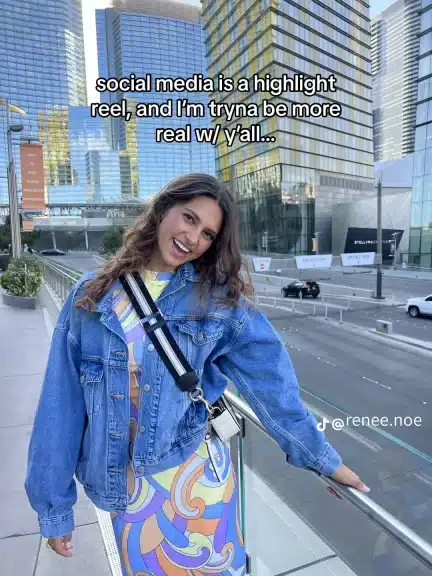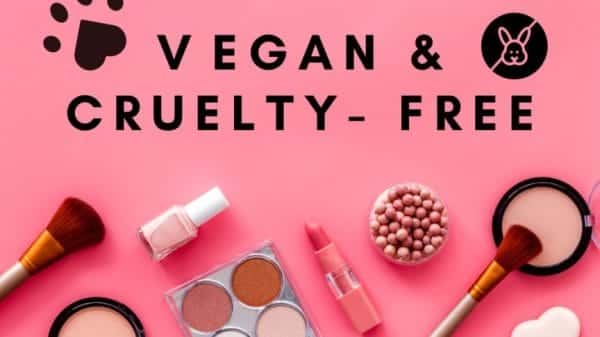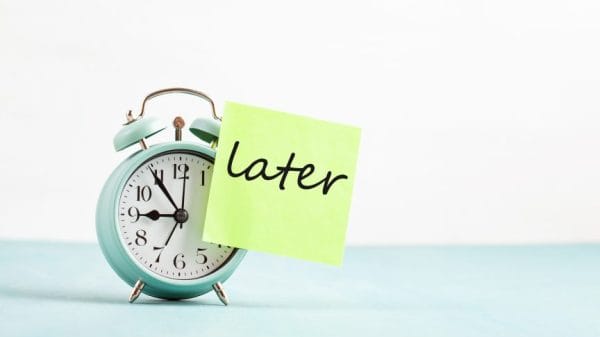In a world of edited photos and aesthetic videos, TikTok influencers like Trisha Paytas (@trishlikefish88), Anna Sitar (@annaxsitar), and Reneé Noe (@renee.noe) are getting real and raw about just how fake social media really can be.
What is the “Social Media is Fake” trend?
The “social media is fake” trend, which began the week of Feb. 19, is circulating widely, with thousands of Tiktokers opening up about the imperfections of their lives.
The trend is a series of photos set to the TikTok sound “september slowed”. The cover image flashes a selfie of the influencer alongside a statement such as, “Social media is fake, so here are five things that I am ashamed of.” The rest of the photos depict beautiful and serene settings, each with their own vulnerable confession from the Tiktoker.
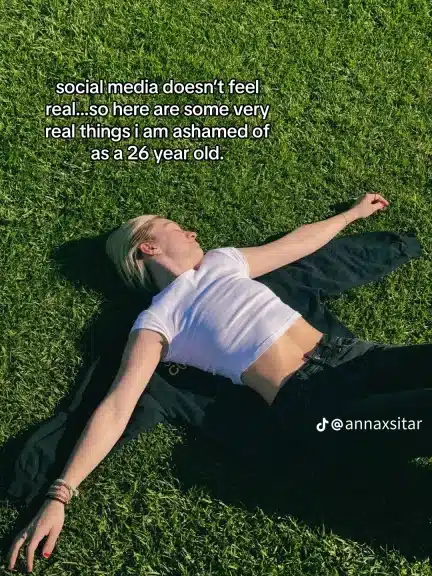
Credit: TikTok/Anna Sitar
Utah-based influencer, Maddi Cobbley (@ilovemycatstewie), was one of the first to participate in this trend. She posted her TikTok on Feb. 20, just minutes after seeing it for the first time. She captioned the video, “I love being real…but this might’ve been the realest thing ever.”
“I saw the trend that day, just before I made the video,” said Cobbley. “I have always wanted to embrace living your own life and not following what other people do. This inspired me to make the video.”
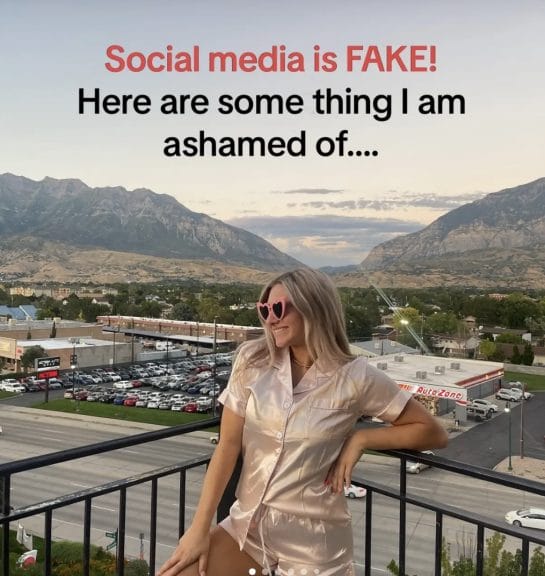
Credit: TikTok/Maddi Cobbley
The TikTok has received 2.1 millions views and over 300K likes, making it her most viral post.
How are fans responding to the “Social Media is Fake” trend?
“I really did not think the post would blow up like it did, but it is really cool,” said Cobbley. “It feels really good. There are a lot of really sweet comments from people saying that I inspired them. I never thought I would be able to do that.”
Cobbley opens up about failing her first semester of nursing school, something that particularly received an outpouring of love and support in the comments.
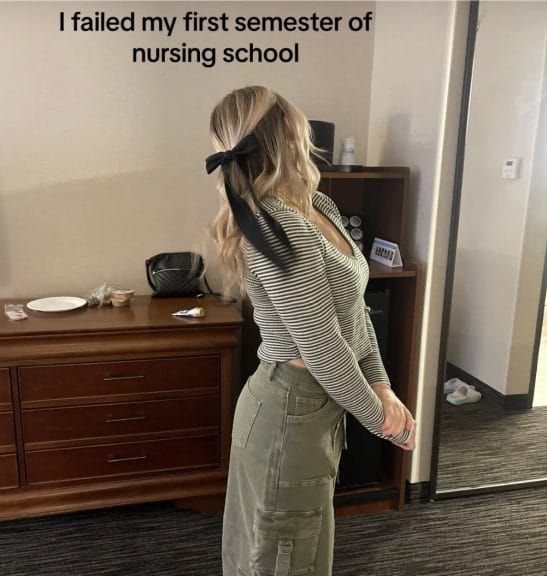
Credit: TikTok/ Maddi Cobbley
“In the post, I said that I failed my first semester of nursing school. It was really hard for me because I have always wanted to be a nurse, but life just gets in the way sometimes,” said Cobbley. “There was a comment that said, ‘The best nurses are the ones who really want it. You going back to school just shows that you do really want it. I would be so happy to have you as my nurse one day.’”
“As someone who is struggling with nursing school, I needed this,” said one commenter.
Cobbley also shares the daily things she is ashamed of, like wearing the same contact lenses for four months, rarely putting her laundry away on the same day she washes it, and not seeing the dentist in two years.
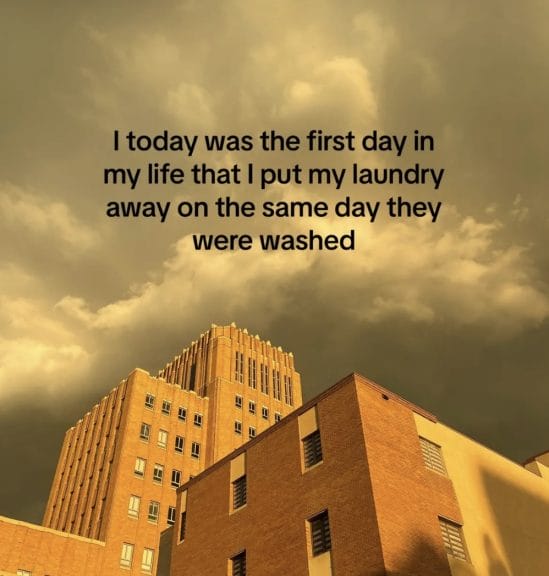
Image Credit: TikTok/Maddi Cobbley
“I feel that it is the daily things that get overlooked,” she said. “Once there are a bunch of daily things stacked up on top of each other, it can be very stressful. I felt it was very important to include.”
How are fans responding to TikTokers’ inner thoughts?
Cobbley unveils some of her darkest secrets, many of which are not unfamiliar to us.
“I think about death a lot. Not about myself, but like losing a loved one. Every day”, Cobbley states in one of her photo slides. “I think I’m a bad friend,” she states in another. She exposes the raw emotions that many people feel daily, yet typically hide or cast aside out of shame.
Her viewers were overwhelmingly grateful for her honesty.
“This is refreshing to hear in a world full of perfect,” said one comment, which received 40,000 likes.
“[I relate to] The death one. I don’t feel so alone. I hate that it’s a constant lingering thought every single day,” commented another person.
What is the impact of the “Social Media is Fake”trend?
This trend is promoting self-love and acceptance. People all over the platform are coming together to share their imperfections and listen to others, sympathizing with many who face similar struggles.
These influencers show their audiences that although one’s life can look picture-perfect online, we all encounter thoughts, small daily occurrences, and big-scale events that can make life feel difficult to live. It is completely normal, and there is solace in finding others who feel what we feel. We should not be ashamed to share when life gets tough.
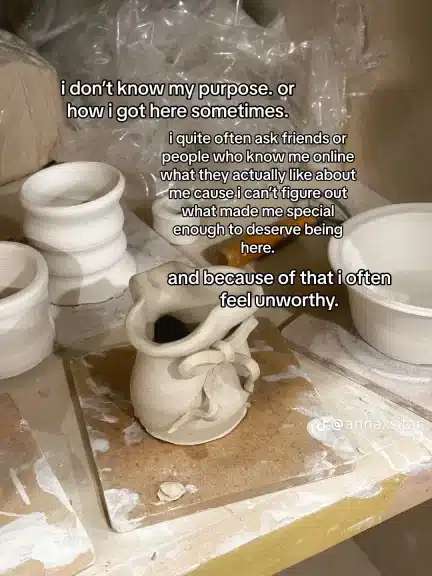
Credit: TikTok/Anna Sitar
“These videos make me feel like a person again,” one commenter said. “I feel like I’ve been ashamed of myself for so long.”
“And despite all the imperfections, you are still a lovely and wonderful person, and that’s what life’s truly about,” added another.
What does this trend mean for the future of social media?
This trend signifies an already-growing movement to make social media more relatable. TikTok, a platform trending away from viral dances and towards daily vlogs, uniquely serves as a source to share life’s struggles and be real. It has taken the charge for all other platforms.
“I think TikTok, for sure, is the biggest and first platform to move towards realness,” said Cobbley.
“Since I posted [my TikTok], I have seen so many more people post about it,” added Cobbley. “I had only seen about two videos before, but now I see about two a day.”
The movement away from over-edited pictures and aesthetic videos is helping people feel less isolated.
“I relate to almost all of these,” one comment said. “Thank you for helping me feel less alone.”
“Nobody is perfect, no matter what they look like on the outside, no matter what they post,” said Cobbley. “Everybody, no matter who they are, is going to have struggles that they deal with and that they hide.”
Social media will remain to share success stories and exciting moments; however, if we commit to honesty, we can foster a community rooted in the beautiful reality of our imperfections.


